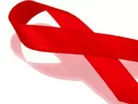Better programmes and more money needed to fight AIDS

The Joint United Nations programme on HIV/AIDS (UNAIDS) has said that better programmes are needed to continue with the fight against the disease.
UNAIDS has released a new report ‘AIDS at 30: Nations at the Crossroads’ to coincide with the 30th anniversary of the disease which is today, June 5.
In a foreword to the report, UN General Secretary Ban Ki-moon said: “We have a long way to go to prevent new HIV infections, end discrimination and scale up treatment, care and support.”
He also said: “The number of people becoming infected and dying is decreasing, but the international resources needed to sustain this progress have declined for the first time in 10 years, despite tremendous unmet needs.”
READ MORE FROM THE WDM CONTENT NETWORK:
To read the latest edition of Healthcare Global, click here
- Meditation helps to relieve stress and beat depression
- The Priory: A top-class research facility
- Diet and exercise tips to control weight loss
The UNAIDS report outlined early setbacks followed later by successes in the fight against the disease.
One of the major advances in the battle with the illness has been getting AIDS drugs from richer countries into the poorer areas of the world.
A high-level meeting will be held later this month by the UN General Assembly in New York to assess progress and advances in the fight against HIV/AIDS.
The report noted that at the end of last year 6.6 million people across the world in low and middle-income countries had access to treatments for the disease.
However, the UN had planned for ‘global access’ to HIV/AIDS medication by 2010, a goal which has not yet been met.
UNAIDS claimed in the report that achieving this goal would require a major boost in monetary funds.
Despite a ten-fold increase in available funds for HIV/AIDS prevention in poorer countries between 2001 and 2009, the recent economic crisis has seen western countries, who are the biggest contributors, start to curb their spending.
The report declared that “waning support” had to be rectified and begged middle-income countries to fund their own HIV/AIDS treatments and prevention campaigns.
It also asked that countries that were emerging as ‘developed’ became donors to the cause rather than receivers.
It was on this day in 1981 that US epidemiologists released a report discussing the cases of five homosexuals whose immune systems had been destroyed.
Since then, acquired immune deficiency syndrome (AIDS) has killed 30 million people across the world while 33 million people are living with the human immunodeficiency virus (HIV) which causes it.
- HIV Testing Landmark Highlights Ongoing AIDS ProblemsProcurement & Supply Chain
- HIV, Polio & the Great Plague: Top 10 past healthcare crisesTelehealth & COVID-19
- Glaxo and Pfizer-backed firm launches digital HIV serviceDigital Healthcare
- New HIV treatment for children will be 75 per cent cheaperMedical Devices & Pharma



